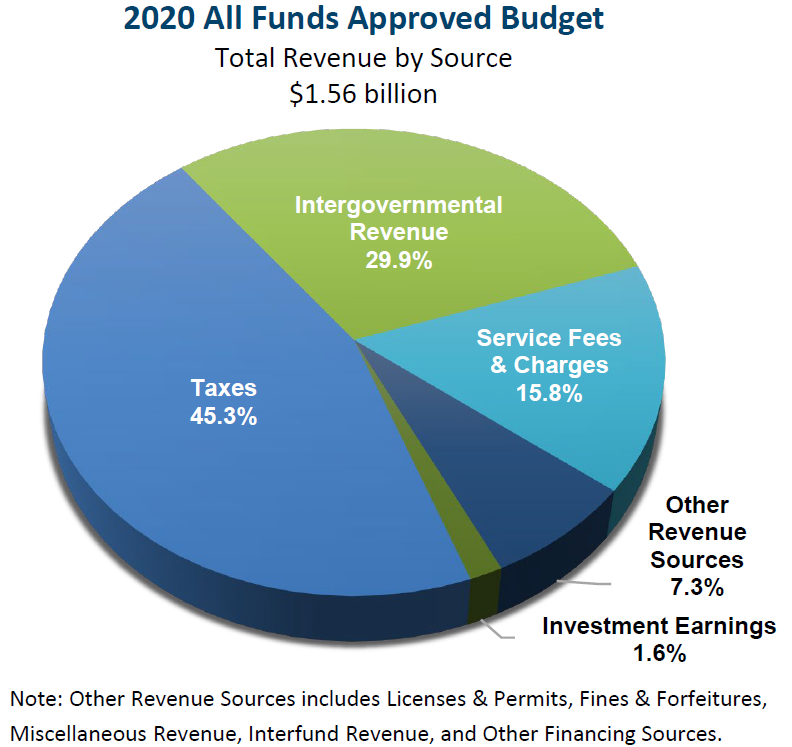A LETTER FROM COUNTY COMMISSIONER JOHN O’GRADY

Hello! Happy New Year, and welcome to the first Commissioner Connection newsletter of 2020. I’m Commissioner John O’Grady, and am honored again this year to have been selected by my colleagues to serve as president of the Franklin County Board of Commissioners.
Last year was a great one in Franklin County, and I’m excited about everything we have on tap for 2020. In 2019, we made
historic new investments in affordable housing, and rolled out a
blueprint to begin to more comprehensively address poverty in our community. Nothing is more important to the future of our county than ensuring that the people who live here have the opportunity to share in its success, so in 2020 we’ll be putting that plan into action.
Last year, we also rolled out a new
Text to 911 capability for Franklin County residents experiencing an emergency, opened a
new memorial to local veterans, and moved into a newly remodeled hearing room that will make the Board of Commissioners meetings more transparent and open to anyone who wants to follow their county government in action. Several of our programs, at Job and Family Services and Child Support Enforcement,
won national awards, and we also joined the
Forward Cities program to support entrepreneurs in under-served communities, and expanded our Building Futures program to help social services clients make the jump to sustainable middle class jobs.
Finally, I am also glad to report that we’re continuing to work to recruit and retain the best and brightest county employees for our residents by instituting a paid family leave program, new
$15 per hour minimum wage for our employees, and already in 2020 we’ve won an award as the healthiest large employer in Central Ohio.
The new year is already off to a great start in Franklin County. In this edition of Commissioner Connection, you’ll read about millions of dollars in community grants that we’re making, how else your dollars are being spent in the 2020 budget, a standout county employee who’s working to make sure that all parts of our community are able to work seamlessly with the county, and so much more.
Thank you again for keeping up with your county government. I hope that you will continue to do so by following us on
Twitter and
Facebook, and I’m excited to announce that there’s a whole new way to keep up with the commissioners on
Instagram. As always, don’t hesitate to
reach out to my office if I can ever be of assistance, and thanks for reading.

John O'Grady
Franklin County Commissioner
COMMISSIONER GRANTS TO COMMUNITY PARTNERS AN IMPORTANT PART OF SOCIAL SERVICES IN FRANKLIN COUNTY

For more than a decade, the Franklin County Board of Commissioners has made grants to local social services agencies that serve our community. The
Rise Together blueprint to address poverty in Franklin County that the board commissioned and released last year provides a new guide to how on most effectively direct these dollars.
The community grants are a sort of “force multiplier” in which dollars are leveraged in order to provide a greater service in the community by the organizations who are most expert in their various areas. In the past, the grants have been spread throughout the year, but the commissioners have decided for 2020 to make all of the grants together and as early in the year as possible in order to get the dollars working in the community as soon as possible. Twenty-six partner agencies are receiving grants this year, which total almost $6.4 million.
Fifteen of the grants this year specifically address the Rise Together goal of
improving physical, and mental and behavioral health and well-being; increasing access to care, utilization of services, and social connectedness. Other grantees this year focus on areas of Domestic Violence, Hunger, Humane Animal Care, Job Training, Homeless Youth, and Services for Immigrants. There are also seven new grantees that haven’t received Community Partnership Grants in the past.
In all, the commissioners’ Community Partnership Grants are expected to provide much-needed services to thousands of people throughout the community, and help ensure that everyone in Franklin County has the chance to share in all that Central Ohio has to offer.
A full list of 2020 Community Partnership Grant Recipients is below.
- Cancer Support Community of Central Ohio
- Center for Family Safety and Healing
- Central Ohio Diabetes Association
- Charitable Pharmacy of Central Ohio
- Children’s Hunger Alliance
- Columbus Humane
- Columbus Public Health
- Community Mediation Services
- Community Properties Impact Corporation
- Equitas Health
- ECDI
- Franklin County Public Health
- Franklin Park Conservatory
- Freedom a la Cart
- Heart of Ohio Family Health Centers
- House of Hope
- Mid-Ohio Foodbank
- Nationwide Children’s Hospital
- OSU Extension, Franklin County
- Physicians CareConnection
- Prevent Blindness, Ohio Affiliate
- Primary One Health
- Produce Perks Midwest
- Riverview Center
- Southeast, Inc.
- Star House
FRANKLIN COUNTY NAMED HEALTHIEST LARGE EMPLOYER IN CENTRAL OHIO
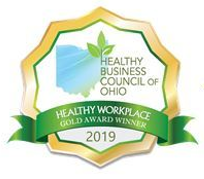
The Franklin County Cooperative Health Improvement Program has long been recognized as one of the most progressive and effective health and wellness programs in the region. For 2019, however, the county has taken things to a new level, and been recognized by the Healthy Business Council of Ohio with a gold award and also as the healthiest large employer in Central Ohio.
The Franklin County Cooperative Health Improvement Program supports more than 6,000 employees across 46 separate agencies to promote health and wellness, and to reduce healthcare costs. The program, administered by the Franklin County Board of Commissioners, understands that a strong workforce benefits a strong public, and includes members from other local governments such as Pickaway County and Grandview Heights.
In addition to overseeing its members’ health insurance benefits, the Cooperative oversees an extensive wellness initiative called ThriveOn that was key in the Healthiest Employer designation.
Wellness describes positive individual health, quality of life, and well-being, and the commissioners know that being healthy requires that one also is well. ThriveOn focuses on physical health, but also on improving the intellectual and emotional, social and community, and material aspects of employees’ lives. It’s a multidimensional approach to helping employees be healthy
and live well.
ThriveOn provides opportunities for members to have biometric screenings and get vaccines at work, reimburses for gym memberships, and even provides monetary incentives for completing healthy activities. ThriveOn can also connect members to benefits such as a weight loss program with interactive coaching, and the ThriveOn team also organizes healthy activities at work, and the new annual Franklin County 5K.
The Franklin County Commissioners are proud to help keep their team healthy and well, and understand that investing in their team is an investment in Franklin County. For more information about ThriveOn or the Cooperative Health Improvement Program, visit
bewell.franklincountyohio.gov.
SPOTLIGHT ON A COUNTY EMPLOYEE - MARLEISE WICKER
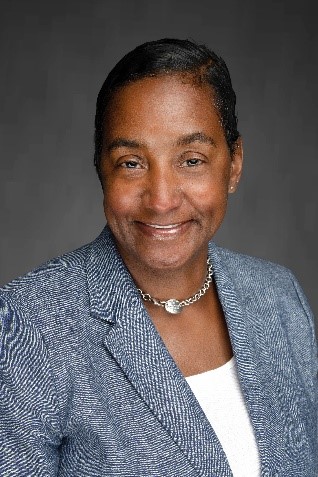
The Franklin County Commissioners’ Purchasing Department oversees county procurement, surplus auction, printing, and mail services. Last year, this included almost half a billion dollars in purchase orders, and there are nearly 7,000 vendors registered to do business with the county, but it can be daunting for a smaller company to try to get a piece of this business. Helping smaller and minority-owned businesses to find those opportunities, however, is a priority for the commissioners, and it’s a full-time job for their Small and Emerging Business Coordinator, Marleise K. Wicker. She won the Frank W. Watson Advocacy Award from Ohio MBE last year, and she’s on a mission to make sure that every business in the community knows about opportunities at Franklin County and has the chance to do business with the county government.
Thanks for taking the time to talk with us today about what you do for the county, Marleise. First, tell us a little about yourself and how you came to be in the position you’re in now.
Well, I’m a proud Columbus native, and went to Ohio State and Ohio Dominican. I started off my career working for the Ohio Department of Transportation, and worked in the ODOT office of Diversity and Inclusion for more than 15 years. Then I worked for the Cleveland Regional Transit Authority for about three years, and I’ve been here at Franklin County for more than two and a half.
Tell us about your roll here with the commissioners.
I’m the Small and Emerging Business Coordinator, which means that I act as a liaison between small businesses and opportunities at the county. I work for the commissioners and their 14 agencies, and support the other elected county officials’ offices as well. There are lots of different small or minority-owned business certifications, and it can be daunting to try to work through all of them and identify eligible small businesses. I’m a one-stop shop.
Why is this something that’s important to the commissioners?
Small businesses are the backbone of our economy, and working with them provides growth and opportunities for our constituents. It’s important to make sure that all parts of our community have the opportunity to work with the county, and it’s also good practice to have lots of different partners rather than relying on just a couple big suppliers.
Help me understand about those certifications, and what constitutes a small, emerging, or minority-owned business.
These terms can mean different things, but usually they refer to ownership and control of a business that falls below a certain threshold of gross receipts. The threshold varies by industry, though, and there are several different agencies that do the certifications. We accept the various local, women, disadvantaged, minority, and veteran-owned businesses enterprise certifications rather than administering our own.
And where can a small business find more information about working with the county?
We have a website,
commissioners.franklincountyohio.gov/sebe, but most people find out about us in person one way or another. A big part of my job is outreach, working with small businesses to try to find places where they might be able to fill the county’s needs. When I started here, people didn’t know that we had a program to promote participation with small and emerging businesses. They’ve been thrilled to find out about it, and word is getting around.
What’s a typical day like for you?
There’s no such thing as a typical day for me! I like that it’s always different, but for instance, I might start my day presenting to the commissioners in General Session, then go to a meeting to get to know some new small business owner. In the afternoon, I might attend some pre-bid conferences, meet with the Purchasing Department, and then have an outreach event in the evening. I’m always on the run.
What do you like best about your job?
I love the interaction with the small business owners. Their passion for what they do really motivates me to help them find an opportunity with the county.
What’s the hardest part of your job?
Not enough hours in the day, but we do what we can in the time we have to get the word out and support our agencies.
What do you wish more people knew about what you do?
Just that there is a program to help connect small and minority-owned businesses with county purchasing opportunities. From heavy construction to bulk paper procurement, there are plenty of opportunities throughout the county to go around, and I can help make that happen.
Anything fun your coworkers don’t know about you yet?
I have an NBA championship ring! I obviously wasn’t on the team, but I worked for the Q Arena back in 2016 when the Cavs won it all, and everyone in my department got a ring. We also got one when the Lake Erie Monsters minor league hockey team won the Calder Cup that same year. I also love to travel. Most recently, I was in Tampa to see my aunt receive her doctoral degree, and I was in Las Vegas last summer. In 2018, I went to Dubai on vacation, and I’ve also been to Italy, but Maui is my favorite.
BE COUNTED! YOUR COMMUNITY IS COUNTING ON YOU.
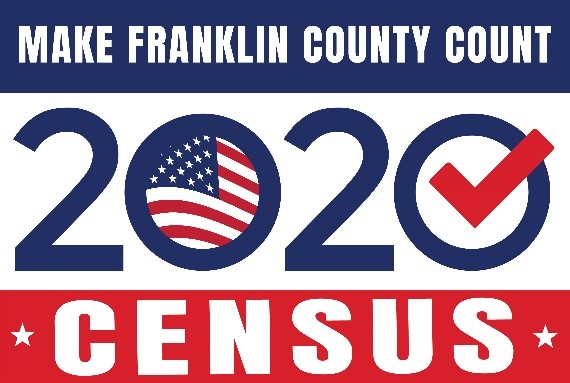
In about a month, residents all over the country will begin receiving postcards in the mail from the U.S. Census Bureau telling them how to go online and be counted in the 2020 census. The count is required by the U.S. Constitution, and the results are used to help determine funding for the programs that our neighbors rely on, like Medicare, Medicaid, Head Start, public transportation, disaster planning, and economic development efforts. They’re also used to determine how many representatives our state has in Washington D.C.
Every person in each household should be counted, no matter what their relationship to the homeowner, and regardless of immigration status. By law, the information collected cannot be shared with other government agencies or used for other purposes, and with only ten questions, the census is safe, easy, and important!
Census Grants for Community-Based Organizations
Knowing the importance of a full and accurate count of all Franklin County residents, the commissioners have partnered with the City of Columbus to create the 2020 Census Complete Count Committee. In addition, they’re providing funding for targeted mini-grants for local, community-based organizations to help spread reliable information about the census and encourage hard-to-count communities to participate. Grants are available for up to $10,000, and applications are due February 24
th at noon. Visit the commissioners’ website for
more information and to
apply for a grant.
THE COMMISSIONERS’ BUDGET FOR 2020 IS BALANCED, FORWARD-LOOKING, AND TRANSPARENT
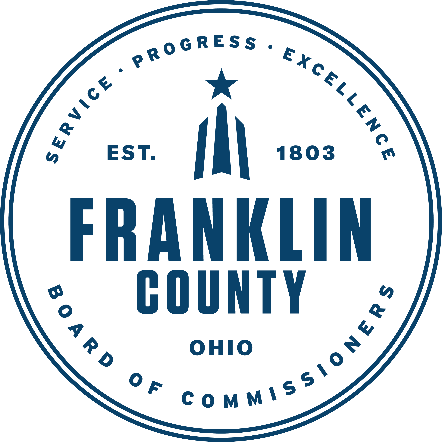
At their last meeting of 2019, the commissioners passed
a new budget for 2020 as they do at the end of each year. The three commissioners oversee 14 county agencies directly, and are the administrative arm of county government in general, setting the budget for all other agencies and elected officials as well.
You can see the county’s budget on the commissioners’ website, but there’s also another document that may be of even more help in understanding the county’s priorities and financials. Each year, the commissioners’ Office of Management and Budget produces the Residents’ Guide to the Budget. The yearly
Residents’ Guide explains how the county’s budget process works, and how the commissioners’ team works with each elected official to arrive at smart budget decisions, and also details the ways in which the commissioners are planning for the future in their budgeting today.
The county budget is made up of several different funds that have different sources and different uses. The largest of these is the county General Fund, which totals almost $487 million this year. The General Fund is made up mostly of local tax dollars, service fees and charges, and almost 60% of spending from this fund is allocated to supporting Justice and Public Safety.
All county funds together make up the All Funds budget. This includes the General Fund, levy dollars, revenue from Ohio’s casinos, and intergovernmental revenue including from the state and federal governments. This budget is much larger at $1.78 billion, and the largest share of its expenditures are for Social and Human Services.
The Residents’ Guide to the Budget details these and other expenditures in greater depth, and also highlights some of the commissioners’ spending priorities for the coming year. Anyone who is interested in where the county’s resources come from and how they’re spent should check out the
Residents’ Guide. An even greater in-depth look at the 2020 budget and budgets of years past can be found on the Office of Management and Budget’s webpage
here.
